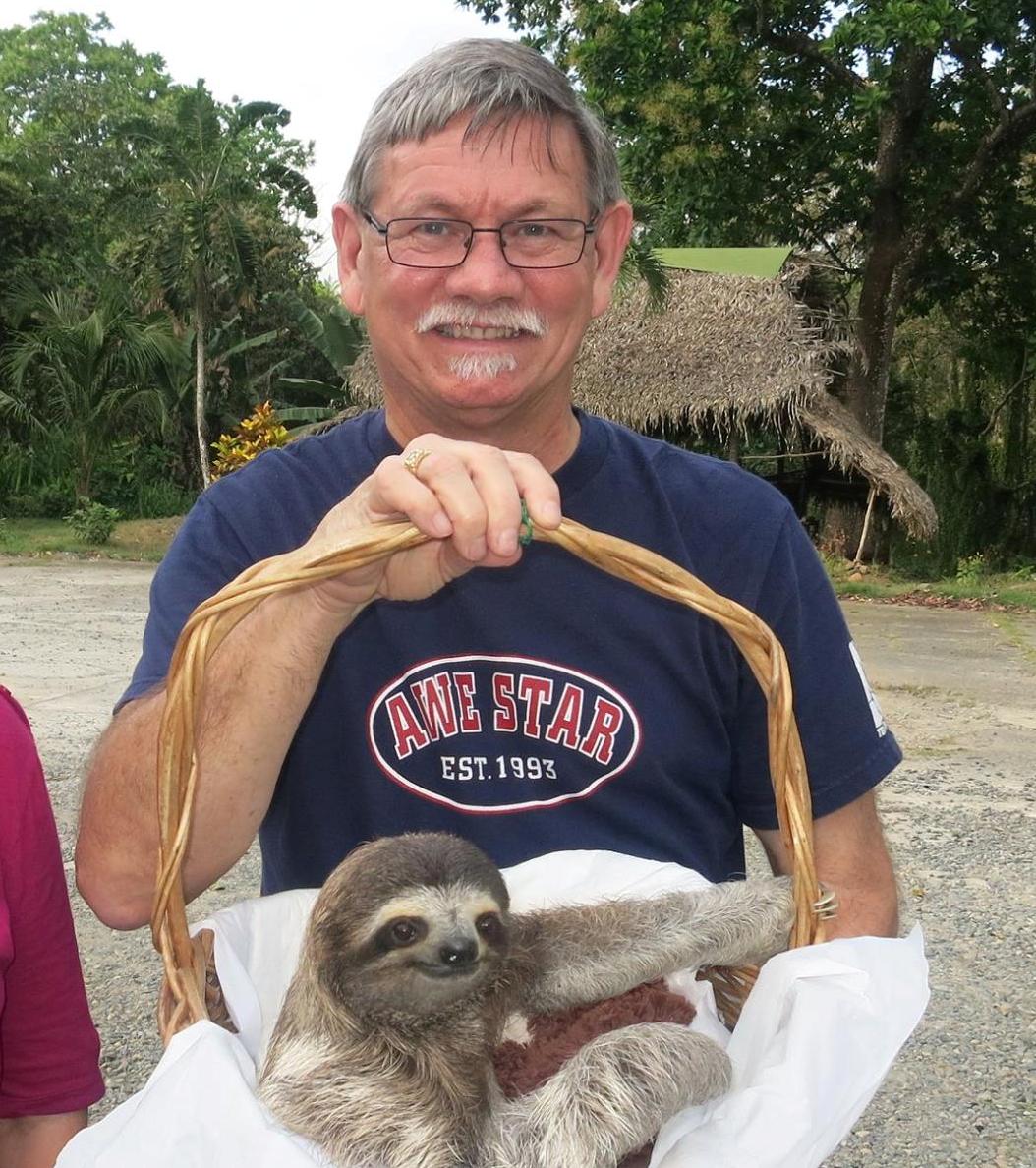 Last month, I was back in the country of Panama. I had several agendas for my trip. One was to take my wife on a mini-vacation, and another was to reconnect with some of our contacts. I especially wanted to go back into the rainforest to the village of San Antonio. The cross I carried up Mount Kilimanjaro came out of this area, and the people gave me a special send-off and prayed for me as I made the journey. I had not yet had a chance to report back to them about the climb, so I made them a shadow box with a picture and a piece of the cross inside. The story of the cross and mountain moved them, and when I presented them with the shadow box, their eyes welled with tears.
Last month, I was back in the country of Panama. I had several agendas for my trip. One was to take my wife on a mini-vacation, and another was to reconnect with some of our contacts. I especially wanted to go back into the rainforest to the village of San Antonio. The cross I carried up Mount Kilimanjaro came out of this area, and the people gave me a special send-off and prayed for me as I made the journey. I had not yet had a chance to report back to them about the climb, so I made them a shadow box with a picture and a piece of the cross inside. The story of the cross and mountain moved them, and when I presented them with the shadow box, their eyes welled with tears.
While in Panama, I also got to hold a sloth. My Panamanian friends and I have had a long-standing joke about these slow-moving animals. They claim they find them everywhere: in their backyards, hanging on fences and generally overrunning the entire country. But in 15 years of serving in Panama, I had seen only one sloth, and that was at a great distance. My friends can’t understand why they see them and I don’t. But whenever I ask them to show me the sloths, the animals mysteriously disappear.
The Panamanians joke with me that when the sloths hear me coming, they run away. But sloths don’t run, at least not very fast. Whenever I come to Panama and ask my friends how they’re doing, they say something like, “It’s been tough getting from place to place and trying to avoid all the sloths crossing the road.” I smile, and they grin back at me.
But on this trip, as I was boarding the boat to head to the jungle, I saw a woman holding two orphaned sloths. She was caring for them until she could release them back into the wild. So for the first time, I got to hold a sloth and examine it up close.
When I was growing up, we used the King James Version of the Bible. The newer, fancier versions hadn’t come out yet. One of the words used throughout the King James was slothful. It meant “lazy or apathetic,” much like an actual sloth. “He also that is slothful in his work is brother to him that is a great waster” (Prov. 18:9 KJV).
We don’t hear many teachings these days about being slothful or lazy. But in some literary contexts, slothfulness is listed as one of the seven deadly sins. Even if you don’t use the word “slothful,” here are five things you need to teach your children about work. As followers of Christ. . .
1. We are called to work with excellence. That’s the opposite of a society that says do as little as you can as slowly as you can for as long as you can. Jesus said if someone asks you to go with them one mile, go with him two (Matt. 5:41). As believers, we must exceed our employers’ expectations or, if we’re employers, we must exceed our employees’ expectations.
2. Our work is part of our worship. Whether cleaning our bedroom or serving as the CEO of a company, we must perform with the same attitude, doing our work as unto the Lord. It isn’t what we do, but how we do it that reflects the life of Christ. “So whether you eat or drink or whatever you do, do it all for the glory of God” (1 Cor. 10:31).
3. We are to provide for families and ourselves through our own labors. The Scriptures state clearly that if you have the capacity to work and you don’t, you shouldn’t expect to eat (2 Thess. 3:10).
4. We find satisfaction in working. Knowing you’ve provided a roof for your family and put food on the table brings contentment. And you receive great satisfaction when you can use the fruit of your labors to bless others (Prov. 13:4).
5. We understand working reflects the very nature of God. In the beginning, we see God at work, creating for six days and resting on the seventh. And God continues to work in our lives. Through every situation and circumstance, God is at work (Rom. 8:28).
It is a sad commentary on our parenting that we raise our children not to work, but to depend upon others for their needs. We need to be about the work of teaching our children to work. Someday, may it be said that it would be easier to find a sloth in Panama than a slothful person in our churches.




